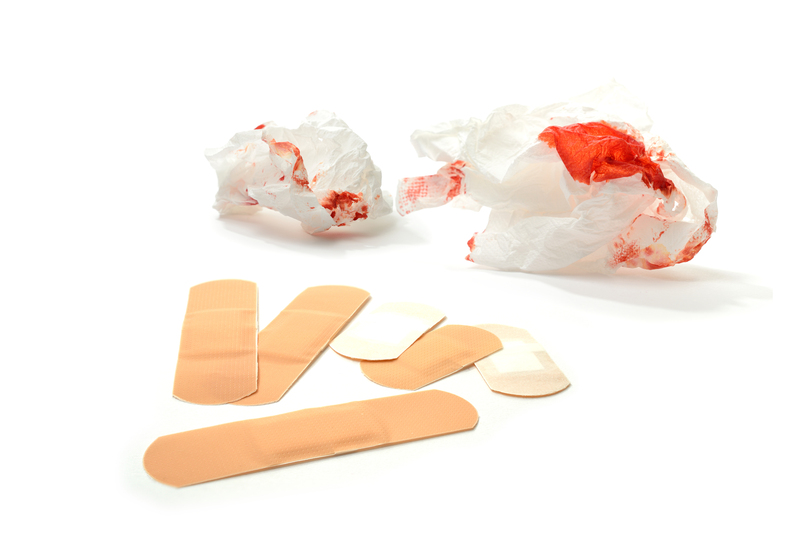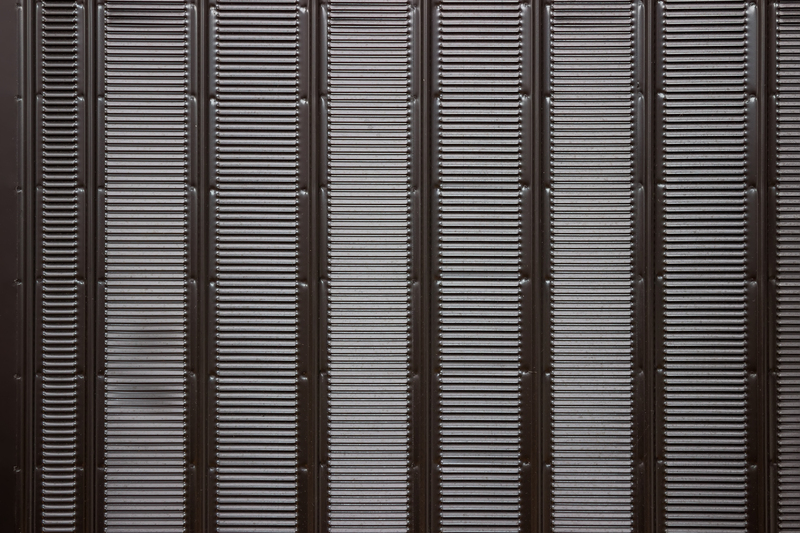Top-Rated Jewellery Cleaning Techniques Unveiled
Posted on 30/09/2025
Top-Rated Jewellery Cleaning Techniques Unveiled: An Expert Guide
Jewellery is not merely an accessory - it is a reflection of personal style, sentiment, and sometimes even legacy. Over time, however, even the brightest gems and most lustrous metals can lose their sparkle if not properly maintained. Maintaining your jewellery's brilliance isn't just about aesthetics; it preserves value and ensures longevity. In this comprehensive article, we reveal the best jewellery cleaning techniques--tried, tested, and approved by professionals--for everything from heirloom gold to sparkling diamonds and delicate pearls.

Why Proper Jewellery Cleaning Matters
Daily wear exposes your favourite pieces to sweat, perfumes, lotions, dust, and pollutants. These substances can cause:
- Dulling of gemstones and metals
- Tarnish, particularly on silver and certain gold alloys
- Loose or lost settings due to collecting grime
- Skin irritation from built-up dirt and bacteria
Regular and correct jewellery maintenance not only enhances shine but avoids costly repairs. Read on for top jewellery cleaning recommendations at home and when to seek professional help.
Essential Preparations Before Cleaning Your Jewellery
Know Your Jewellery Type
Identify your jewellery materials. Not all stones and metals tolerate the same cleaning agents or techniques. The wrong method or chemical can scratch, discolour, or irreversibly damage your treasured items.
- Precious metals: Gold, silver, platinum
- Gemstones: Diamonds, sapphires, emeralds, rubies, pearls, opals, and more
- Costume jewellery: Often made with non-precious metals and glue-set stones
Gather Appropriate Cleaning Supplies
Some universally safe tools include:
- Lint-free cloths or microfiber cloths
- Soft-bristle toothbrush (preferably baby toothbrushes)
- Mild dish soap
- Bowls of lukewarm water
- Jewellery specific polishing cloth
Avoid harsh chemicals, abrasives, and strong brushes on delicate pieces.
The Most Effective At-Home Jewellery Cleaning Techniques
1. The Gentle Soap & Water Method
This classic technique for cleaning jewellery works for most precious metals and hard gemstones.
- Mix: Add a few drops of mild dish soap to a bowl of lukewarm water.
- Soak: Place jewellery in the solution for 15-20 minutes.
- Brush: Gently scrub crevices and behind settings with a soft toothbrush.
- Rinse: Under cool running water. Take care near sinks - cover drains!
- Dry: Pat with a lint-free cloth.
Best for: Cleaning gold, platinum, diamonds, sapphires, and rubies.
2. Baking Soda for Tough Tarnish
Silver jewellery often darkens due to natural tarnishing. This easy DIY silver cleaning method brightens up pieces without scratching them.
- Line a bowl with aluminium foil, shiny side up.
- Place your silver jewellery on the foil.
- Sprinkle with baking soda and a little salt.
- Pour hot (not boiling) water to cover items. Bubbles signify tarnish removal!
- Wait 5-10 minutes, then rinse and gently buff dry.
Best for: Sterling silver chains, rings, and bracelets.
Caution: This is not recommended for silver pieces with soft stones or delicate filigree.
3. Professional-Grade Jewellery Cleaning Solutions
Specialised cleaning fluid is available for almost every jewellery type. The best store-bought jewellery cleaners are:
- Non-toxic and ammonia-free
- Suitable for the specific metal/gem
- Easy to use, with dipping trays or brushes provided
Follow the product instructions strictly for optimal results and safety.
4. Polishing Cloths for Fast Shine
A two-step jewellery polishing cloth removes light tarnish and buffs up a glossy sheen. Always use a cloth made for your item's metal. These are excellent for quick touch-ups between deep cleans.
5. Cleaning Delicate Gemstones and Pearls
Certain gems--such as emeralds, opals, and pearls--are highly sensitive to heat, moisture, and chemicals.
- Pearls: Wipe individually with a soft, damp cloth. Never submerge pearls or use ultrasonic cleaners.
- Opals & Turquoise: Use a clean, damp cloth without soap.
- Emeralds: Soak briefly in water, never for more than a minute.
Avoid abrasive cloths, harsh detergents, or anything pressurised when cleaning delicate or organic gems.
6. Ultrasonic Jewellery Cleaners
Ultrasonic machines send high-frequency sound waves through water or cleaning solution, shaking off stubborn dirt. These devices are effective for:
- Diamond rings
- Platinum jewellery
- Gold chains (without soft stones)
Do not use ultrasonic cleaners for porous stones (pearls, emeralds, opals), antique pieces, or glued settings. Check manufacturer instructions carefully before use.
Common Jewellery Cleaning Mistakes to Avoid
- Using toothpaste or baking soda on soft gems: These abrasives can scratch stones like turquoise.
- Soaking glued jewellery: Water may weaken or dissolve the adhesive.
- Over-cleaning: Too frequent or aggressive cleaning can loosen settings and dull finishes.
- Ignoring professional checks: Always have your favourite pieces inspected at least once a year by a qualified jeweller.
- Using harsh chemicals: Bleach, ammonia, or chlorine can damage metal and gems, especially pearls.
How to Store Jewellery to Prevent Grime Build-Up
Proactive care can reduce the need for cleaning. Here's how to keep your jewellery bright for longer:
- Store items individually in soft cloth pouches or box compartments to avoid scratching
- Keep away from humidity--use dehumidifying packets inside jewellery boxes
- Remove jewellery before strenuous activities, showering, or swimming
- Apply lotions, perfumes, and hairsprays before putting on jewellery
Travelling With Jewellery
Carry pieces in separate pouches, ideally in a padded case. Never keep jewellery loose in bags where they can tangle or be scratched by keys or coins.
Expert-Recommended Frequency: How Often Should You Clean Your Jewellery?
- Frequently worn items: Clean lightly every 1-2 weeks, with a more thorough cleaning monthly.
- Special occasion pieces: Wipe down after each use and deep clean before storing for the long term.
- Heirloom or valuable jewellery: Professional checkups and cleaning once a year are advised.
Regular maintenance extends the life and beauty of every piece you cherish.
When to Seek Professional Jewellery Cleaning
While at-home methods are safe for robust pieces, always consult a professional jeweller when:
- Cleaning heavily tarnished antique jewellery
- Dealing with fragile, high-value gemstones
- Settings feel loose or prongs are bent
- You're unsure about the right technique for mixed-material pieces
Professional jewellers have specialised tools, ultrasonic and steam cleaners, and the expertise to restore brilliance without risking damage. Investing in professional care periodically can also help catch needed repairs early.
Eco-Friendly and Alternative Jewellery Cleaning Ideas
Eco-conscious shoppers may prefer "green" cleaning options. Jewellery cleaning without chemicals can be achieved using:
- Steam: A hand steamer (never near delicate gems!) to blast grime away.
- Vinegar and Baking Soda: For certain metals, a light soak followed by a gentle brush can restore shine. Avoid on pearls and soft stones.
- Lemon Juice: A diluted solution removes tarnish on copper or brass. Never use on silver, gold, or gems.
Always check stone and setting compatibility before using alternative cleaning agents.

Conclusion: The Secret to Lasting Sparkle
Shining, well-kept jewellery transforms your look and preserves cherished memories. With these top-rated jewellery cleaning techniques unveiled, you can safely and effectively clean your favourite pieces at home. Remember, each jewel and metal deserves specific care, and when in doubt, consult a trusted professional - ensuring every piece remains a source of pride and beauty for years to come.
Key Takeaways for Pristine Jewellery
- Match the right cleaning method to each jewellery material.
- Use soft tools and avoid harsh chemicals on delicate items.
- Store pieces safely and clean regularly to prevent dirt and tarnish.
- Seek professional advice for high-value or fragile jewellery.
Apply these expert tips, and your dazzling pieces will thank you with everlasting brilliance!
Frequently Asked Questions About Jewellery Cleaning
Is it safe to clean all jewellery with soap and water?
Most hard gemstones and precious metals are safe with mild soap and water, but porous or delicate stones (like pearls, emeralds, and opals) should only be gently wiped with a damp cloth, avoiding immersion.
Can you use vinegar to clean gold jewellery?
Pure gold can sometimes tolerate diluted vinegar, but this may harm alloys or set stones. Stick to soap and water for universal safety.
How do I make my diamond ring sparkle again?
Soak in warm, soapy water; gently brush and rinse well. For deep clean, use a diamond jewellery cleaner or ultrasonic device if stones are securely set.
Should I polish my silver jewellery every week?
No. Weekly polishing may wear away silver over time. Use a polishing cloth for touch-ups and a deep clean only as tarnish appears.
Ready for a brilliant transformation? Start applying these top-rated jewellery cleaning tips today and watch your collection sparkle as never before!




